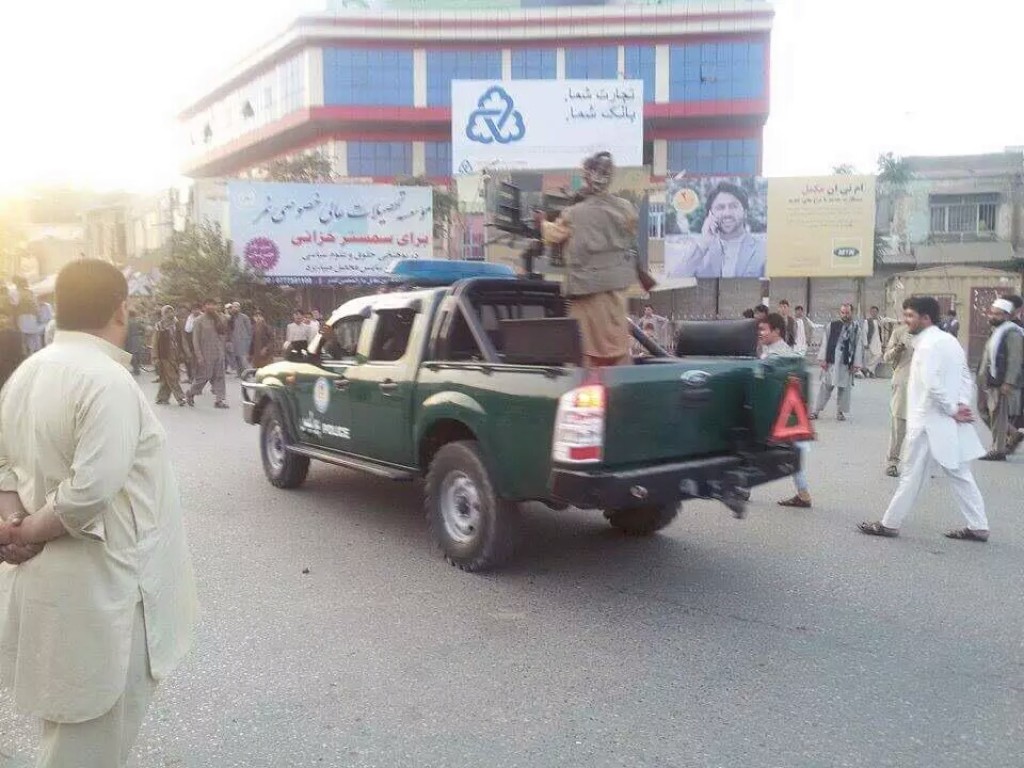The Unwinnable War
"[There remains] a sustained intensity and geographic scope [in the three previous months and] continued to result in significant casualties and displacement among Afghan civilians, as the Afghan National Security Forces sought to counter the efforts of insurgent groups to undermine the government."
"The concerted effort by anti-government elements to capture and hold district centres in a number of provinces ... resulted in the capture of seven district centres, a significantly larger number than in previous years."
"A one percent increase in total civilian casualties compared with the same period in 2014. The vast majority of civilian casualties [90 percent] resulted from ground engagements, improvised explosive devices, complex and suicide attacks and targeted killings."
United Nations Security Council Afghanistan situation report
"This wasn't an overnight sensation. The tension has been rising in Kunduz for a number of years. It's been [on] a persistent simmer."
Jason Campbell, RAND Corporation
"I think that from a strategic perspective, Afghanistan was never a winnable war. We've had many, many politicians, military folks and analysts that have tried to wish a reality onto Afghanistan, and they've been wrong, time and time again."
Thomas Johnson, director of culture and conflict studies, Naval Postgraduate School, Monterey, California
 |
| Taliban parading through the streets of Kunduz |
Afghanistan, the country that has been occupied throughout its history by one intruder after another, has never been conquered, and it refuses to be pacified from within. Where, traditionally, it has been invaded by a succession of hostile countries and in its most recent 19th Century history both Russia and Britain vied with one another for command of the country, it was Russia, and then the United States in the 20th Century that invaded, winning some battles but losing their wars.
Afghanistan's warlords and its fierce tribal, clan and sectarian loyalties might have ensured that the country would always be roiled with conflict. Drug and arms dealing would always enlist the interest of challengers to any notion of a central government capable of extending the rule of law and committing the country to a trajectory of civilized conduct, but corruption has always exerted too robust a pull, permeating the entire society at every level.
Human-rights-abusing warlords took their place as lawmakers in the Afghan parliament. The national police operated like a confidence gang thriving on extorting money from the public, incapable of professional conduct, no less than the military. Afghans might have been relieved to be rid of the hard-fisted rule of the Taliban after the Russians decamped from their failed occupation, but once they were freed of Taliban rule they chafed at the presence of foreign armies.
The building of a civil infrastructure in the presence of NATO troops and NGOs notwithstanding, including the liberation of women from their stifling cultural roles, the introduction of new laws, of medical clinics, of schools and employment opportunities for women were all hailed as breakthroughs in the forced absence of the Taliban, but they lingered and waited for the inevitability of foreign troops leaving. The immense $trillion investment of treasury and the loss of Western lives a lesson in futility.
Eager to see the foreign elements absent themselves, the new National Unity government of President Ashraf Ghani was confident that the NATO-trained and equipped National Security Forces would be more than adequate to countering and defeating the Taliban. Now, a resurgent Taliban has more than amply demonstrated its capability of striking anywhere it wishes, including the capital. And the ANSF continues to bleed deserters, while failing to professionally prove their mettle.
The Taliban, in their far fewer numbers than the military easily entered and captured Kunduz, a major city of 300,000 known for its relative wealth and the province for its agricultural plenitude. Outnumbered by a four-to-one ratio, the Taliban nonetheless proceeded with their three-pronged attack, while an unprepared ANSF failed to react. Dozens of ANSF personnel were killed and captured, hundreds fled the conflict.
The provincial governor of Kunduz is nowhere to be seen, and there is suspicion that he is among the collaborators of the Taliban, known to have infiltrated at every level of government, military and society. Although NATO's International Security Assistance Force mission has departed, American special forces still present in the area have lent their professional expertise to the Afghan military.
And that cost Medecines Sans Frontieres a hospital presence in the area when 22 people were killed in a series of U.S. air strikes, giving cover to the Afghan military.
The current year has not be a good one for the people of Afghanistan, much less for the confidence of the Unity Government of President Ghani in the leap in Afghans displaced from their homes in Kunduz province numbering over 103,000. The more professional wings of the ANSF were assigned out of Kunduz leaving the province to rely on local Afghan police, poorly trained and equipped militiamen and villagers themselves, with questionable loyalties.
Labels: Afghanistan, Conflict, NATO, Taliban, United States

<< Home